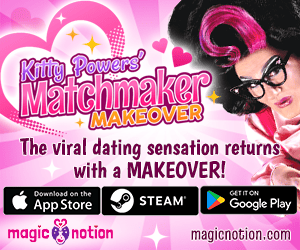
Eternals portrayal of Thena shows heroes need time to heal too
Eternals hasn’t been all that popularly received by the masses, but it resonated to me through the film’s handling of Thena. It gave me a glimpse of what my coping process looks like when I struggle with my Borderline Personality Disorder. Seeing a Marvel hero go through a reminiscent symbolic breakthrough, with the help of ongoing support from loved ones, was so unexpected in a movie I was prepared to just group in with all the other Marvel movies that have left me, mostly, unimpressed.
In fact, Marvel’s cinematic universe has mostly been a way for me to be kept in the loop of what my friends really enjoyed. I’ve never been much of a comic lover outside of appreciating Carnage foil covers, and as someone who is really bad at small talk, these movies gave me ways to talk to friends, co-workers, and strangers at conventions.
Even so, with explosive battles, an immersive soundtrack, and anticipating which hero they’ll add into the next movie, I still struggled to stay awake during each new addition to the MCU. However, since Black Panther’s release, it gave me hope that these films were going to continue to give me characters that were multifaceted, with a plot that made me think about it for days after, and without the cringey forced humor. Eternals was the next Marvel movie that showed me something new – heroes with mental disabilities need time to process and heal too.
Directed by Chloé Zhao (Nomadland, The Rider, Songs My Brother Taught Me), Eternals follows a group of extraterrestrials who have been living in secret on Earth almost since the beginning of its inception. They were sent by Arishem, a giant space being in charge of the Eternal race, on a mission to defeat all Deviants – monsters who hunt humans. Once they finally defeat the last Deviant, they all separate to live their own lives for thousands of years to come. That’s until a Deviant, with the capability to absorb the powers of whichever Eternal it kills, pops up in current-day London, leaving characters Sersi (played by Gemma Chan) and Sprite (Lia McHugh) wondering what the hell is happening.
This is just a Sparknotes version of the beginning of the movie. What’s to come are plot twists that left my mouth open, beautiful cinematography, and being invested in every Eternal’s story and growth throughout the movie.
Phase 4 is bringing along shows and movies with a diverse cast that prove they can be just as impactful as its mostly white predecessors. Shang-Chi became the highest grossing movie since the pandemic began, and The Falcon and The Winter Soldier dethroned anime giant Attack on Titan as the most popular show during its run. Eternals’ impact in giving almost every type of person a seat at the table (regarding race, sexuality, and those with mental and physical disabilities) is something still rare in media – and having it exist in one of the most popular franchises made me a Marvel stan.

Gilgamesh and Thena’s relationship was a refreshing break in the stream of cinema stigmatizing mental health. During a war amongst humans, the Eternals make an attempt to leave, but Druig (Barry Keoghan) stops the group and questions why they shouldn’t help and stop the current bloodshed happening. While Ajak explains why Eternals should not meddle in between human affairs, Thena’s Mahd Wy’ry (pronounced like mad weary), a condition where Eternals become hostile and violent, kicks in and attacks those around her. When she calms down, Ajak suggests she be killed as she is no longer up to Arishem’s standards to complete the mission. Gilgamesh stops any further discussion about Thena dying, and takes the responsibility in taking care of her.
At first, I thought the movie was following the path of the tired “this female character is ‘crazy,’ she has to be a possible villain!” and I was annoyed about it. But I repressed my eye roll, as I soon realized Eternals shifts Thena’s story to one I can relate to.
In between the years all the other Eternals were living their own life on Earth, Gilgamesh took care of Thena in an isolated desert somewhere in Australia. Through context and how he treats her, you see Gilgamesh does not treat her like an animal that goes rabid at any time, but as a loved one who is having a rough time, and just needs more extra special help than usual.
Mental disability is no longer a villain trait with Thena’s Mad Wy’ry. As someone who suffers from mood swings because of my mental disability, seeing any type of handicap, mental or physical, on the big screen was a constant letdown when watching movies. Having mood swings be an indicator as someone you should stay away from is more common than we think, and it’s quite influential.
From watching Power Rangers’ Rita Repulsa firecracker personality and being known to beat up anyone who’s a mere annoyance, to the ever-changing eras of Batman’s Joker, known for his unpredictable behavior. We grow up constantly watching and hearing that mood swings are just a big no-no. Thinking to myself “what the hell is wrong with me” when my ups and downs would happen made me think I was bad myself. I felt broken and unable to be fixed. The stigma to give up on someone when they show behaviour other than perfect is very real, and it’s one we really need to break in this day and age.

Gilgamesh’s tender understanding towards Thena leads the movie to show that what we feel is very real and coming from a place we often don’t understand (yet), we have to accept that ourselves and the people we love are not perfect and that breaking it down into venting and coping, can help us keep ourselves in reality when everything feels uncontrollable and wrong.
As you watch Eternals, you realize that Thena’s Mad Wy’ry is a condition where Eternals remember their past lives. Thena was remembering the past missions she went on for Arishem, and everyone on the planet and those around her dying for the sake of more Celestials like her leader being born. The Eternals and the audience wouldn’t have known this if the group agreed with Ajak on killing Thena after her Mad Wy’ry attacked others the first time.
Gilgamesh’s taking up the responsibility to take care of Thena, instead of going through with killing her, shows the audience that in these moments, where you feel crazy come from somewhere, you’re not actually “crazy” for feeling awful in that moment.
For Thena it was internal, memories that were suppressed by Arishem were getting triggered, causing her to act out. However, with years of care with Gilgamesh, Thena was starting to control when she started to feel her Mad come up. This caused an amazing breakthrough when she was able to have her Mad Wy’ry wrapped around her finger and defeat one of the major villains of the movie all on her own.
While Marvel has depicted heroes with mental illness, I haven’t seen the effects of time and process in the way I saw in Thena and Gilgamesh. Their relationship reminded me of those who took care of me, and held my hand when I wasn’t okay. When I felt wild and lashed out, they understood it came from a scary place and that I still needed to find ways to cope. If I didn’t have people looking after me at my lowest, the way Gilgamesh looked after Thena, I don’t think I would be the person I am today.





